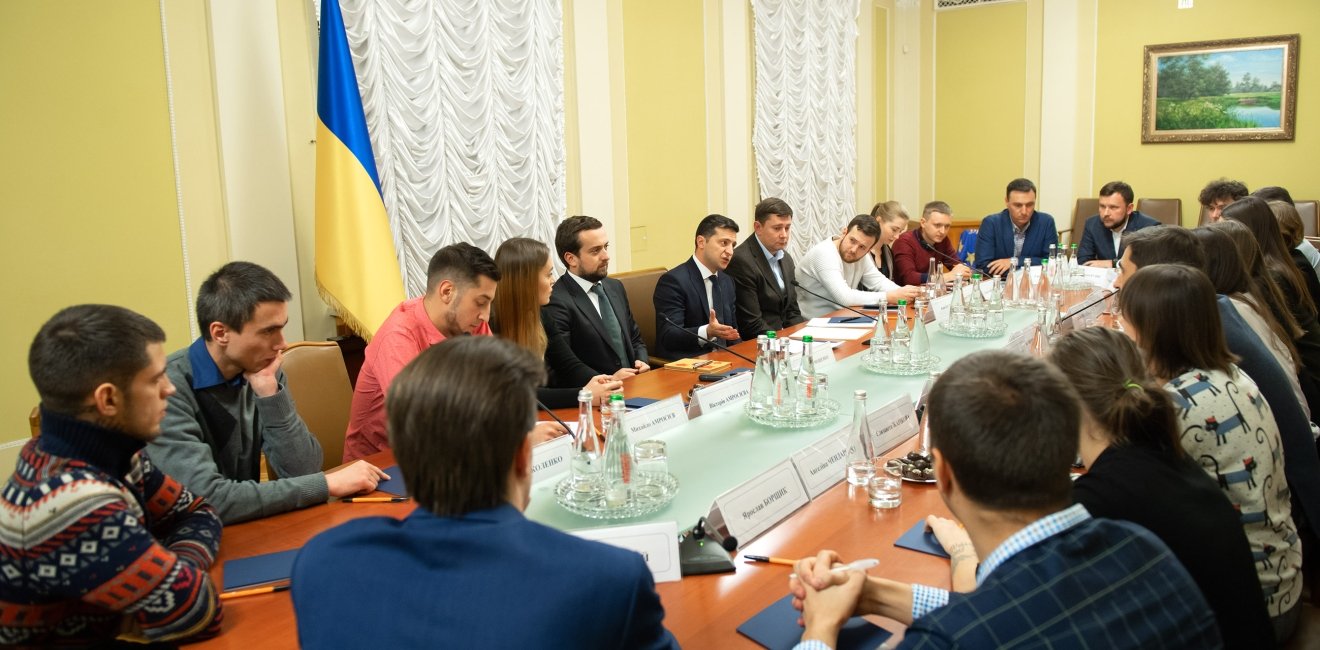
A blog of the Kennan Institute
BY SEMEN GLUZMAN
My friend Peter Reddaway has been ill and I haven't seen him for a long time. But even today, many decades after our last meeting, I remember his cautious, regretful words that the new post-Soviet nations might not follow the path of democracy at all. What he said was not supported by other American Sovietologists: they were totally optimistic about our future.
Alas, my friend Peter was right. In Ukraine, a much freer state than many other Eastern European nations, the situation doesn’t look good.
U.S. ambassador to Ukraine William Green Miller once asked me: "You, Ukrainians—you are very close to Belarusians. Why did a dictator come to power in Belarus, while you have democracy?"
I explained the only way I could: "You see, I am not an expert on ethnic psychology. I can only offer the perspective of an ordinary man. In Brezhnev’s time I was in Soviet political camps, where Ukrainians constituted about a third of political convicts. For many years, up to the time of Gorbachev, I did not see in the camps a single Belarusian, a Kyrgyz, a Kazakh, a Tajik.... I think there is some kind of element of resistance in us, in this land, in this water, in this air."
Taking part in the first Maidan (2004), the civic resistance, I was sure: here it is, the catalyst has appeared! And when I witnessed (though barely participated in) our second Maidan (2013–14), I thought the same. Especially when you compare it with the "color revolutions" in other countries, which coincided with violence and shop robberies.
Today, six years after the Euromaidan, the situation in my country is sorry. A disintegrating state, a dying legal system, increasing emigration, an agonizing social system. And on top of that, a toothless opposition!
A state built on corruption and lies is doomed. In Ukraine, unfortunately, even though the mass media openly report corrupt behavior, corruption remains unpunishable.
A robust and growing frustration among the populace is leading to increased migration. Recently my friend, a law professor at the most prestigious Ukrainian university, asked the students: "Which of you is preparing to leave Ukraine?" Twenty-five out of twenty-seven gave a positive answer.
The authorities’ disregard of the constitution allows them to build a comfortable, even fluid legal environment with the help of an acquiescent legislature. Legal nihilism has become a commonplace even among law enforcement agencies. The reform of the Prosecutor's Office coincided with the elimination of experienced lawyers from its ranks. The Security Service of Ukraine, the former KGB, has connections to organized economic crime. The judicial system openly serves the requirements of the country's rulers.
Can these defects be remedied? In principle, yes, they can be fixed. But everything depends on the political will of the Ukrainian leadership, and the authorities seem to be interested in preserving the defects, which allows them to control the political system in manual mode, sidestepping formal rules.
The unwillingness—or inability—of the Ukrainian government to revive the nation’s once booming economy further degrades the entire social system. The system survives largely thanks to the remittances sent home by Ukrainian migrants who left to find work and a future in other countries. These modern Ostarbeiters contribute a large part of Ukraine’s GDP.
According to official sources, about half of Ukraine’s economy is in the informal sector, which sends no revenues to the budget. For this and other reasons, the banking system of Ukraine is unable to perform its basic social functions.
Several days ago, in response to a question from a BBC journalist, I said, "Today I'm looking at my past differently. I would not be able to act the same way as I did in the USSR, which led to my becoming a political prisoner. Then, I stood up to the Soviet KGB. Now, almost five decades later, I have to confront the new Ukrainian government, in particular the Ministry of Health. Beginning April 1 of this year, the ministry intends to throw tens of thousands of mentally ill Ukrainian citizens out onto the streets, into hunger and cold.”
My friend Peter Reddaway was right: post-Soviet governments do not serve their citizens. But I am not giving up on that goal, and continue my struggle.
Editor’s note: Peter Reddaway is former director of the Kennan Institute.
The opinions expressed in this article are those solely of the author and do not reflect the views of the Kennan Institute.
Author

Kennan Institute
After more than 50 years as a vital part of the Wilson Center legacy, the Kennan Institute has become an independent think tank. You can find the current website for the Kennan Institute at kennaninstitute.org. Please look for future announcements about partnership activities between the Wilson Center and the Kennan Institute at Wilson Center Press Room. The Kennan Institute is the premier US center for advanced research on Eurasia and the oldest and largest regional program at the Woodrow Wilson International Center for Scholars. The Kennan Institute is committed to improving American understanding of Russia, Ukraine, Central Asia, the South Caucasus, and the surrounding region through research and exchange. Read more

Explore More in Focus Ukraine
Browse Focus Ukraine
Talking to the Dead to Heal the Living

Ukrainian Issue in Polish Elections



